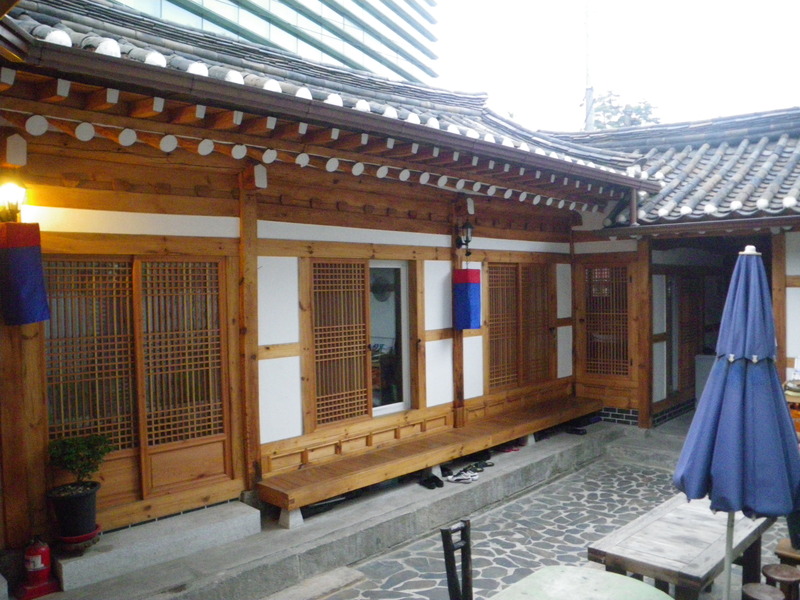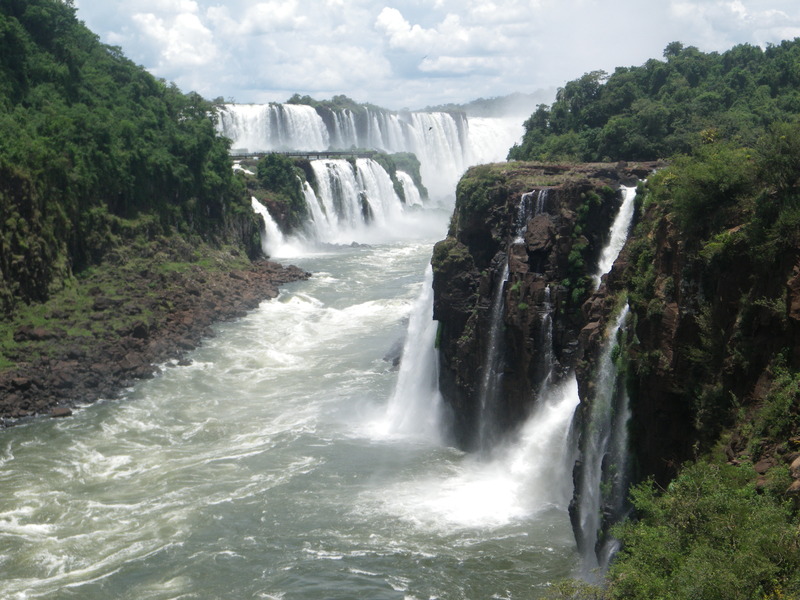
Touching down in Miami on the morning of December 7th brought me to the 7th and final continent on this 7-month trip. This trip is now finished.
Massachusetts
is in the North-East of the United States, and is one of
the New
England states. The South-Eastern part of the state is called Cape
Cod. It is a long, low, generally sandy cape that goes first East,
then North, then turns back towards the West. The water surrounding it
is generally cold, and home to a variety of animals, including seals.
read more
I visited the National Cryptologic Museum in Fort Meade, Maryland.
It is run by the National Security Agency (NSA), the U.S. agency
responsible for electronic spying and monitoring. Although most of the
work they do is very secret, the museum is open to all, does not charge
admission, and allows pictures.
read more
Iguazu falls are shared by Argentina and Brazil, near the border
with Paraguay. The falls are wider and taller than Niagara falls, set in
a beautiful rainforest that both countries have protected with National
Parks. The centerpiece of the falls is the Devil's throat (Garganta
del Diablo), which forms the border between Brazil and Argentina.
read more

The Strait of Magellan separates Tierra del Fuego from the south
American mainland. It was first discovered by European explorers in
November 1520, when two ships, under the command of Magellan, explored
it while looking for a sea route from the Atlantic to the Pacific.
And the Strait of Magellan indeed leads to the Pacific ocean.
read more
Tierra del Fuego National Park is about 18km from Ushuaia, and
preserves some of the coastal ecosystems of Southern Tierra del Fuego.
I had a little free time, and I was able to spend two hours in the
National park. It had snowed in the mountains the day before, and
I really enjoyed the views of the snowy mountains and the green
vegetation.
read more
In Ushuaia, I boarded a ship bound for the Antarctic Peninsula.
read more
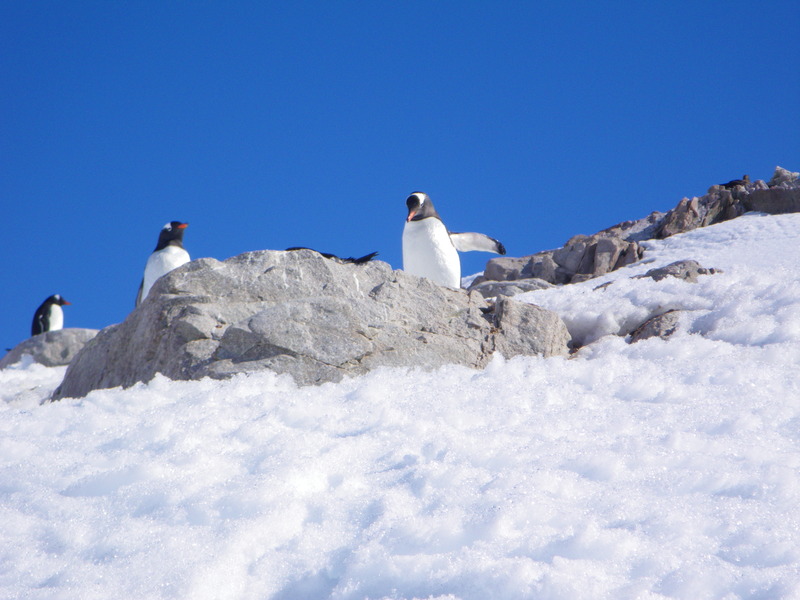
Ushuaia is in Tierra del Fuego, a large island at the very southern
tip of South America, south of Patagonia and 3,000km south of Buenos
Aires. Signs around town talk about this location being "Fin del Mundo",
at the end of the world. The city is on the Beagle channel and surrounded
by beautiful snow-capped mountains.
read more
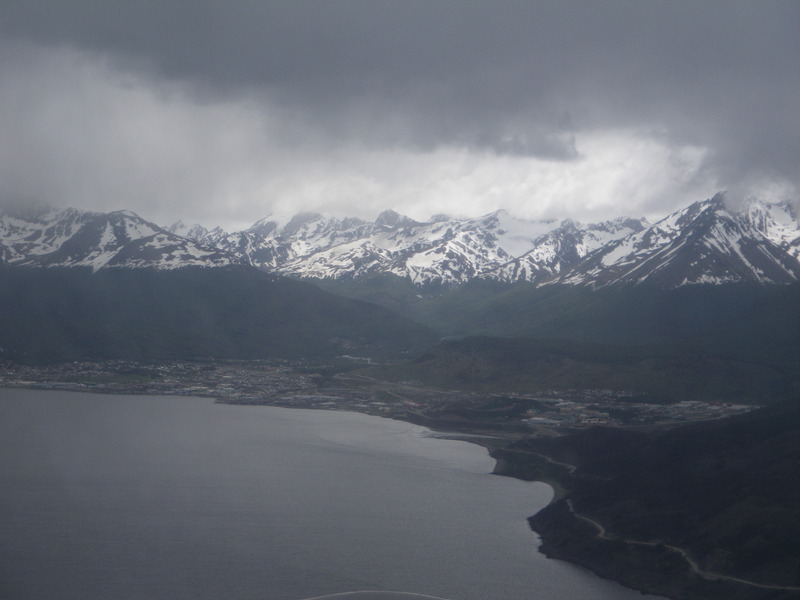
Buenos Aires was founded twice, once in 1536 by Pedro de Mendoza,
then in 1580 by Juan de Garay.
read more
Lisbon has been in existence since at least the 7th century BC
(2700 years ago), when it was a trading hub for Phoenicians sailing to
the islands of tin in what is now Great Britain. Through the Roman,
Visigoth, Arab, and finally Portuguese times, it has continued to
be a port city, favored and defined by its sheltered harbor near the
mouth of the Tejo (Tagus) river. In the 1400s and 1500s Lisbon oversaw
the great Portuguese expansion into Africa, India, China, and Brazil.
In 1755, a terrible earthquake and the resulting tsunami struck Lisbon
and caused tremendous damage. After mourning their losses, the people
of Lisbon redesigned and rebuilt their city afresh.
read more
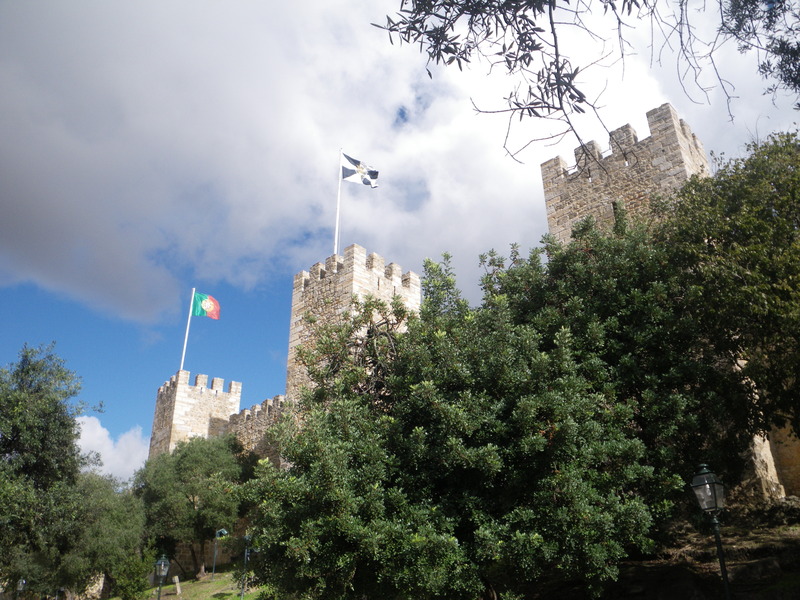
I crossed the Straits of Gibraltar to go take a look at Marrakesh.
On my way back, I had a quick look at Tangier.
On the way back from Albania, we had an afternoon in Corfu, Greece.
read more
Where the Vojussa (Vjosa) river nears the Albanian coast, in ancient
times it was navigable for a few kilometers upstream. On the shores of
the river was the harbor city of Apollonia. Apollonia flourished until
an earthquake in the year 234 AD changed the course of the Vojussa,
rendering the harbor unusable and eventually turning the plain around
Apollonia into a malarial swamp.
read more
The great Albanian hero, Georg Kastrioti Skanderbeg, had a great
castle in the mountains about 20km North of Tirana, Kruje (or Kruja)
castle. Although besieged multiple times in this castle by large
Ottoman armies, he was always victorious, and preserved Albanian
independence for 20 years before his death by malaria.
read more
Durres is the major port city of Albania, and only about 30km from the
capital, Tirana. Durres is another ancient city, and Caesar fought
Pompey in a battle near Dyrrachium in 48BC. Durres was the start
of the Roman via Egnatia, which led all the way to Constantinople and
was considered on extension of the Appian Way, which ended in Brindisi,
across the Strait of Otranto from Durres.
read more
Berat is a mountaintop castle and a town in a very scenic location where
the river Osum cuts between two mountains.
read more
Inland from Butrint is Gjirokastra, birthplace of the Albanian
communist ruler Enver Hoxha, and site of a fortress belonging to
Ali Pasha.
read more
Lake Butrint is a coastal lake in the Southern part of Albania,
connected to the sea by the 2km Vivari channel.
read more
Having traveled on land from Beijing to St. Petersburg, I decided
to continue travelling along the surface by booking a ferry to Helsinki
and on to Stockholm. The ferry is the Princess Anastasia, belonging
to the St. Peter Line. Every four days the ship sails from Helsinki to
Stockholm, then Tallinn, St. Petersburg, and back to Helsinki.
read more
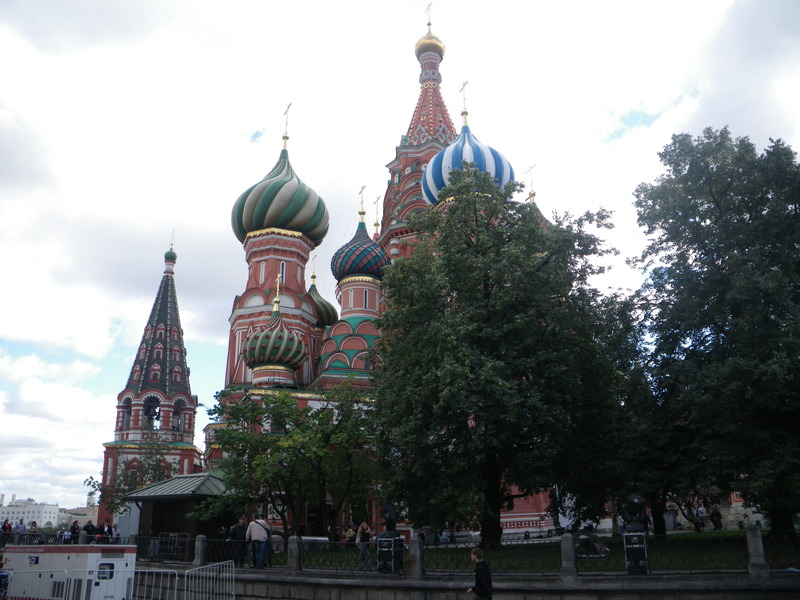
Ekaterinburg has several historical claims to fame. It was and
is a mining center near the mineral-rich Ural mountains. It is the
place where in 1918 the communist revolutionaries under the direction of
Yakov Sverdlov executed the last Tsar and several members of his family.
Sverdlov died in 1919, and in 1924 Ekaterinburg was renamed Sverdlovsk.
During the Soviet period many arms factories were located in Sverdlovsk,
so the city was closed to foreigners and even to Russians who did
not have special permission to visit. In the 1970s Boris Yeltsin was
governor of Sverdlovsk. In 1991 the city decided to change its name
back to Ekaterinburg, though some traces of the old name remain.
read more
You are also welcome to read about my trip from Ekaterinburg to Moscow, though it is probably less interesting.
I am on the slow train to Moscow, getting off at Ekaterinburg (also
known as Yekaterinburg and Sverdlovsk). Ekaterinburg is near the Ural
mountains, so almost in Europe. The trip is 3371km by rail and is taking
me about 56 hours, giving an average speed of about 60km/h.
read more
Irkutsk was founded in 1651, and has had a fairly distinguished
history since, including both a gold rush and a very destructive fire
in the 1880s. About two hours away from Irkutsk, on lake Baikal, is the
resort town of Listvyanka. In Irkutsk, Listvyanka is famous because it
is on the lake. The lake is beautiful.
read more
It took me two nights and one day to travel by train from Ulaan
Baatar, in Mongolia, to Irkutsk, in Siberia, Russia. It could have
taken somewhat less, but the train schedule allows 9 hours for the border
procedures in crossing from Mongolia to Russia, even though the actual
border check took less than an hour on each side.
read more
Ulaan Baatar is the capital of Mongolia. It is surrounded by
mountains, some of them forested. It is much wetter than the desert,
and one of the day that I was here, it was rainy and cold, colder than
Sydney in winter.
read more
One of the attractions around Ulaan Baatar is the Manzshir Khiid
Monastery, which is in the Bogdkhan Ulul Strictly Protected Area, a
beautiful, very green and wooded park about 50km from Ulaan Baatar.
read more
Sainshand is the capital of the Dornogobi (Easter Gobi)
province of Mongolia. It is a stop on the train line from
Beijing to Ulaan Baatar, the capital of Mongolia.
read more
From Beijing there are two lines that go to Siberia. One goes almost
straight North, through Manchuria and Harbin. The other goes more West,
towards Mongolia and Ulaan Baatar (Ulan Bator). I took the one that goes
to Mongolia. My first stop was at Sainshand, Mongolia, the capital of
Dorngobi province, at the edge of the Gobi desert. The entire trip
from Beijing to Sainshand took about 21.5 hours, including several hours
at the border, in Erlian.
read more
I went to Beijing, I saw the Forbidden City and I climbed the Great Wall.
Not very original, but I enjoyed it nonetheless.
read more
Kunming is in Yunnan, one of the provinces in the South of China.
Kunming has a population of only 6.5 million people, amounting to about
0.5% of the population of China. Kunming is known as "Spring City".
It is near the tropic of cancer and about 1,900m above sea level, and
the temperature is supposed to be even throughout the year. It
was certainly pleasant while I was there.
read more
One of my reasons for stopping at Singapore was to visit Bukit Timah
Nature Reserve, a park that I've heard a lot about but that I haven't
been able to visit my previous time in Singapore. What sets it apart
from other areas of Singapore is that it is uncut forest, and so a very
well preserved native rainforest.
read more
Port Douglas is relatively near the Great Barrier Reef, a coral
reef that extends all along the North-Eastern coast of Australia.
As experienced a sailor as James Cook, who sailed across most of the world
multiple times, almost lost his ship Endeavour on one of the reefs here.
read more
Port Douglas is North of Cairns, and at 16 degrees South latitude,
is very much in the tropics. Port Douglas got its start in a gold rush
in the 1870s, but by the 1960s was reduced to a very small town. By
the 1980s, tourism had taken off, and Port Douglas is now a flourishing
tourist town, bordered on the East by beautiful 4-mile beach.
read more
Sydney has a harbor which many years ago was described as
one of the finest natural harbors in the world. Across part of
the harbor is the Harbor Bridge. It offers good views of the
Sydney Opera house.
read more
Darwin is named after Charles Darwin, who stopped here in the 1840s aboard the ship, Beagle, that also took him to the Galapagos. The name was changed to Darwin in 1911, prior to that the town was called Palmerston. Palmerston is still the name of a suburb of Darwin.
Like Broome, Darwin is built on a complicated peninsula with lots
of little capes and beaches between them. Unlike Broome, the cape is
within a large complicated gulf, almost fractal in appearance, and from
downtown Darwin it is hard to see the open ocean.
read more
I have driven from Perth, Western Australia, to Darwin, Northern Territory. It is over 4,000km.
July 21th, Katherine to Kakadu.
July 20th, Kununurra to Katherine, Northern Territory.
July 19th, Fitzroy Crossing to Kununurra.
July 18th, Derby to Fitzroy Crossing.
July 17th, Sandfire roadhouse to Derby.
July 16th, Roebourne to Sandfire roadhouse.
July 15th, Exmouth to Roebourne.
July 14th, Carnarvon to Exmouth.
July 13th, Geraldton to Carnarvon.
July 12th, Perth to Geraldton.
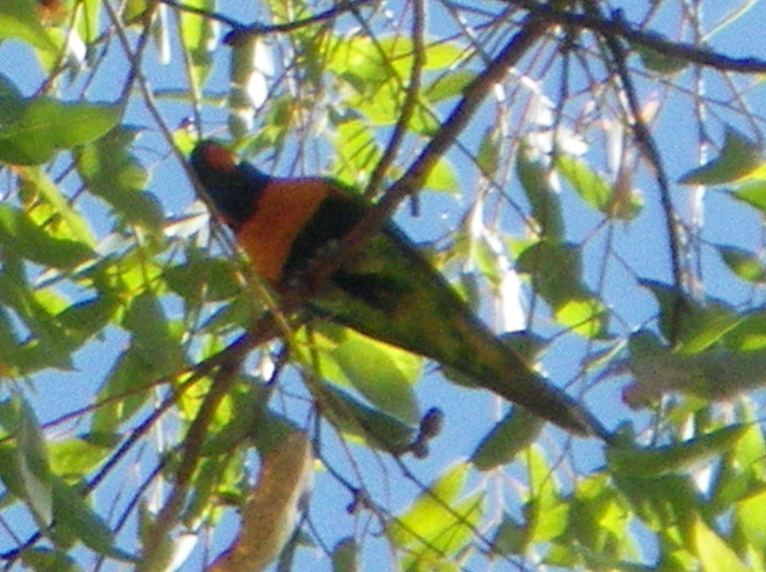
Yesterday and today I visited more of Perth, and the neighboring port
city of Fremantle (home of the America's cup in 1989). Altogether I
visited parts of the town and the maritime museum in Fremantle, a
wonderful art gallery in Perth, and the Perth mint.
read more
I had never been in Australia before, and this is the Southernmost
place I've ever been.
read more
July 4-6 I attended a conference in Patong on the island of Phuket.
July 2nd I visited several spots in Phuket, including
Khao Phra Thaew Royal Wildlife and Forest Preserve, and today I went to
the Phi-Phi islands.
read more
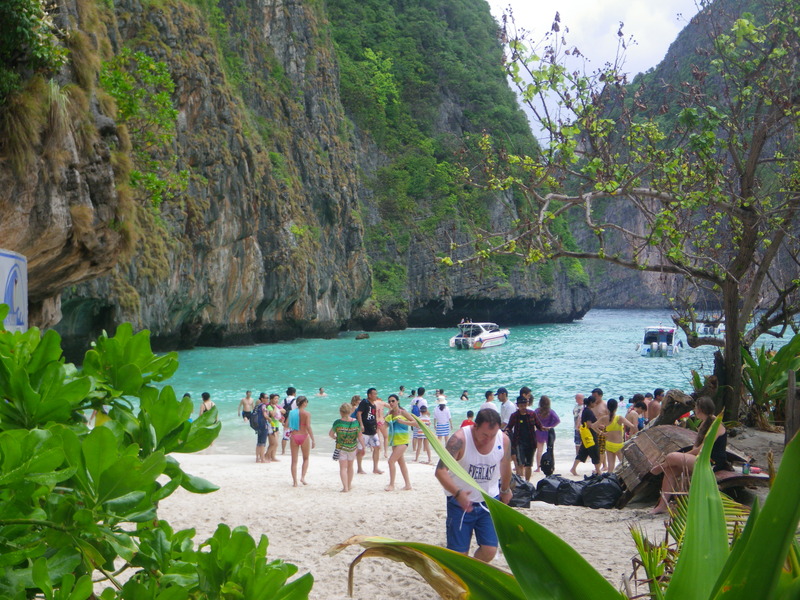
On June 25th, I took a trip up the Mekong, and on June 26th, I went to Kuang Si waterfall
Khao Yay means big mountain. It is the oldest national park in
Thailand, established in 1962, and only about 150km from Bangkok.
read more
From June 10-12, I visited several areas near Kanchanaburi: the bridge over the river Kwai, some museums in Kanchanaburi itself, and Erawan Waterfall in Erawan National Park.
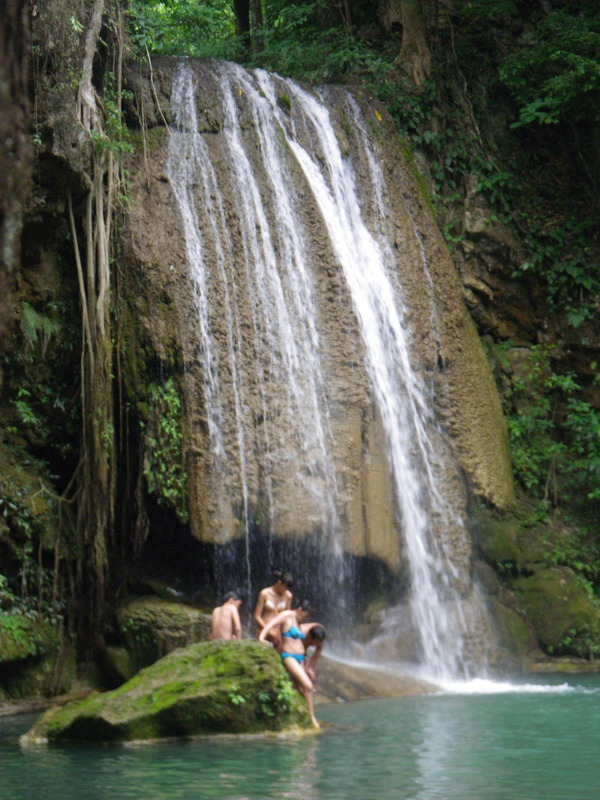
I am staying in Bangkok, getting some work done as well as visiting tourist attractions. So far I have visited Wat Phra Kaew, Ayuthaya, Pattaya, and taken several canal boats.
I did not see the Transit of Venus, because it was cloudy.
I decided to leave Jeju island a day early so I could go see the
famous woodblocks at the Haein temple, not too far from Daegu.
read more
This afternoon I was running errands and eventually went to a place
in downtown Jeju city (Jeju-Si) where you can see a rock on the
seashore that supposedly resembles a dragon's head.
read more
Today I visited sites around Gyeongju proper, particularly the royal
tumuli (burial mounds), the oldest observatory in East Asia, and
the Gyeongju national museum.
read more
Today I went to visit the Bulguk-sa temple and the Seokguram Grotto, both
dating to the 8th century AD, in the kingdom of Shilla.
read more
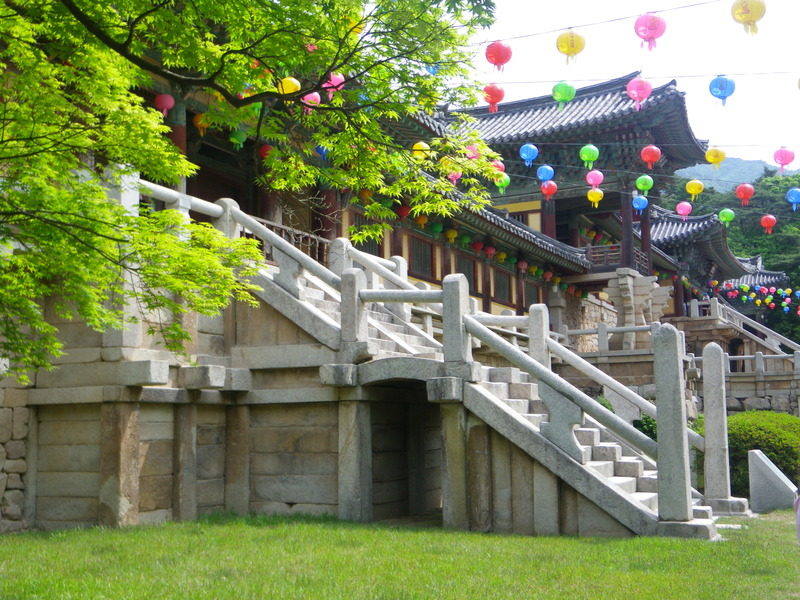
Temporarily you can watch some videos of the changing of the guard.
